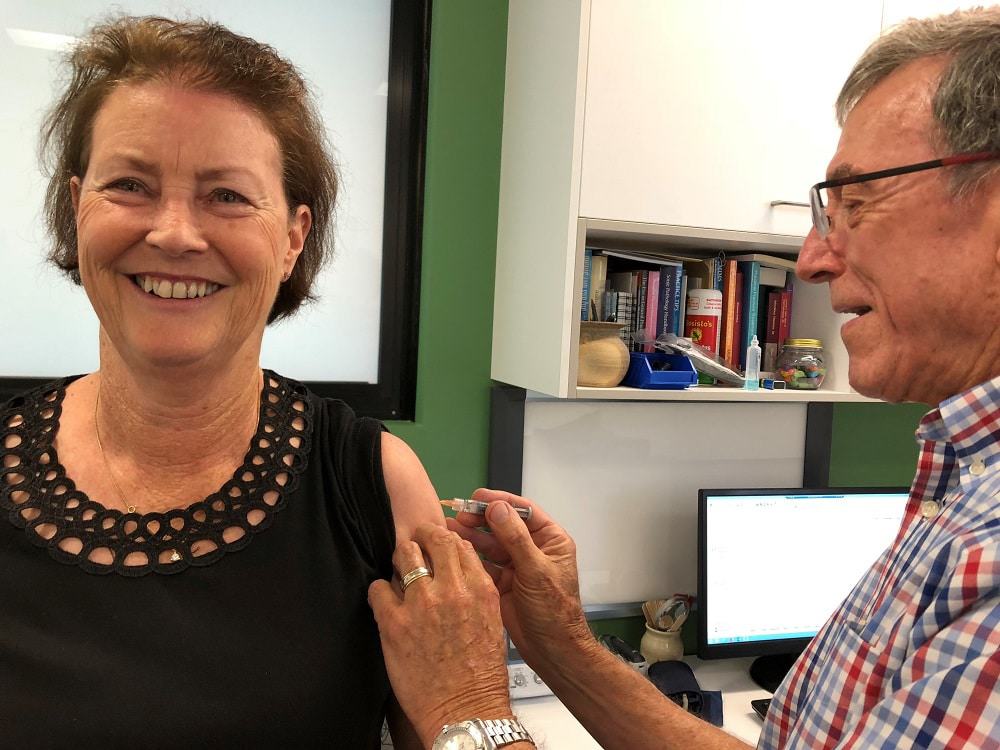
Last year was a very bad year for influenza, with extraordinary numbers of cases recorded across the state.
This year, West Moreton Health surgical ward nurse unit manager Madonna Britton, operational support services manager Ruth O’Brien and divisional director of women, children and family Dr John Gavranich have joined the fight against the flu and are urging people to get along to their family doctor and get vaccinated.
The influenza vaccine is the best defence against the flu and it is available now.
For most people, April to May is a good time to have the vaccination to provide protection in time for the flu season which usually falls from June to October, with a peak that often occurs around August/September.
Getting the vaccine not only protects yourself but it also helps protect those around you, particularly those who are more susceptible to the severe effects of the flu including young children and people aged 65 and over.
West Moreton Health public health unit physician Dr Catherine Quagliotto, said the flu vaccine is free for pregnant women, people aged 65 and over, Aboriginal and Torres Strait Islander people aged 15 and over and some others who are at higher risk of flu complications.
The Queensland Government also offers free vaccine for any child aged six months up to age five years under the Childhood Immunisation Program.
“In the West Moreton there were 3385 cases recorded in 2017, with 383 notifications a week at the height of the flu season,” Dr Quagliotto said.
So far this year there have been 101 confirmed cases of influenza across the West Moreton region – less than this time last year, but about what we would expect for this time of year.”
For the first time this year, there are two new vaccines specifically for those aged 65 and over which are designed to generate a strong immune response and are more effective for this age group in protecting against influenza.
The vaccine does not contain live flu viruses and cannot cause flu. However, some people may experience mild flu-like symptoms for up to 48 hours as their immune system responds to the vaccine.
Serious reactions to the vaccine are rare.
Ipswich City Council provides a free community immunisation clinic to eligible residents.
Click here to check if you are eligible.
Click here to find out where Ipswich City Council’s community immunisation clinics are being held.

Cr Sheila Ireland gets her flu immunisation by Dr Jon Thomas.

Fact File
- Typical flu symptoms include fever, cough, muscle aches and pains, nasal congestion, headache, sore throat and fatigue.
- Flu can spread easily from person to person by droplets from an infected person when they cough, sneeze or talk or if a well person touches surfaces contaminated by infected droplets (including hands, remote controls, phones, keyboards and door handles) and then touches their mouth, nose, or eyes.
- Practice good hand hygiene and wash your hands thoroughly and frequently with soap and water or use an alcohol-based hand rub – this can stop viruses spreading to you.
- It is really important to stay home when you are sick, cover your coughs and sneezes with a tissue then wash your hands.
- On average the flu causes an estimated 3500 deaths in Australia each year.
- You can ask about influenza vaccination at your GP or pharmacy.

